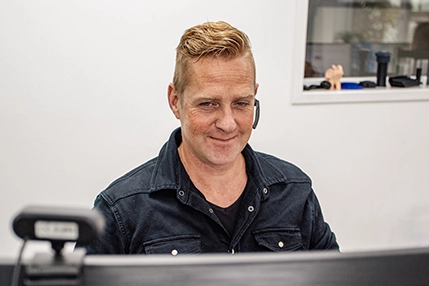PC (Poly-Carbonaat)
Polycarbonate (PC) is a versatile thermoplastic polymer known for its excellent impact resistance, optical clarity, and temperature resistance. It is often used in applications requiring strength, durability, and transparency. Below is a comprehensive overview of polycarbonate, including its properties, applications, and processing methods:
Polycarbonate (PC) Properties
Mechanical Properties
- Strength: PC has high tensile strength and is very strong for its weight. It offers excellent resistance to mechanical stress and impact.
- Rigidity: It is relatively stiff, which helps maintain shape under load.
Impact Resistance: PC is particularly impact-resistant and can withstand high impacts and shocks without breaking, making it ideal for applications where safety and durability are crucial.
Thermal Properties
- Glass Transition Temperature (Tg): Approximately 150°C, allowing PC to maintain its mechanical properties at higher temperatures compared to many other plastics.
- Melting Point: Polycarbonate begins melting at approximately 230°C to 250°C, depending on the specifications.
- Heat Resistance: PC can be used at temperatures up to around 120°C to 140°C, though its mechanical properties begin to degrade at higher temperatures.
Chemical Properties
- Chemical Resistance: PC has reasonable resistance to many acids and bases but can be affected by strong solvents such as alcohols and esters. It is also sensitive to hydrolysis under high temperatures and humidity.
- Moisture Absorption: It has low moisture absorption, though prolonged exposure to water can cause some degradation.
Physical Properties
- Density: Approximately 1.20 g/cm³, making it one of the heavier plastics compared to many other thermoplastics.
- Optical Clarity: PC has excellent optical clarity and transmittance (up to 90% light transmission), making it a popular choice for transparent applications.
Electrical Properties
Electrical Insulation: PC provides good electrical insulating properties, making it suitable for use in electrical and electronic applications.
Applications of Polycarbonate (PC)
Construction and Architecture
- Glass Replacement: Used as a substitute for glass in windows, roofing panels, and other transparent structures due to its strength and clarity.
- Lighting: Applications such as lightboxes and lighting diffusers benefit from PC’s optical clarity and impact resistance.
Consumer Products
- Household Items: Used for products such as water bottles, kitchen utensils, and toys because of its strength and durability.
- Furniture: Found in furniture and decorative items requiring transparency and strength.
Medical Sector
- Medical Equipment: PC is used in medical devices and tools such as injection vials, surgical instruments, and implants due to its biocompatibility and optical clarity.
Automotive Industry
- Lighting and Windows: PC is used for automotive parts such as headlights and windows, where impact resistance and optical properties are critical.
Industrial Applications
- Protective Screens: Used for protective screens, safety goggles, and other products requiring impact resistance.
- Electronic Enclosures: Used for housing electronic devices due to its strong mechanical properties and good insulation capacity.
Processing and Manufacturing
Processing Methods
- Injection Moulding: PC is often processed through injection moulding to create complex shapes by injecting molten PC into a mould.
- Extrusion: Used to create long, continuous shapes like sheets and profiles.
- Thermoforming: PC can be heated and shaped for transparent and moulded parts.
Processing Parameters
- Temperature: During injection moulding and extrusion, the temperature must be managed between 250°C and 300°C, depending on the specific application and equipment.
- Cooling: Proper cooling is crucial to prevent internal stresses and deformation, especially for larger or more complex parts.
Advantages of Polycarbonate (PC)
- Impact Resistance: PC is highly impact-resistant, providing excellent protection against shocks and impacts.
- Optical Clarity: Its high optical clarity and transmittance make it ideal for applications requiring transparency and brightness.
- Temperature Resistance: It retains its mechanical properties at higher temperatures compared to many other plastics.
Disadvantages of Polycarbonate (PC)
- Chemical Resistance: PC can be affected by certain solvents and high humidity, leading to degradation.
- Scratch Resistance: The surface of PC can be prone to scratches, making it less suitable for applications requiring a scratch-resistant surface, though coatings are available to improve this.
Conclusion
Polycarbonate (PC) is a versatile plastic excelling in impact resistance, optical clarity, and temperature resistance. It is used in a wide range of applications, from construction and architecture to consumer products and medical devices. Despite some limitations such as chemical sensitivity and scratch resistance, the combination of strong mechanical properties and excellent optical quality makes PC a popular choice for many uses. By following appropriate processing and usage parameters, PC can be effectively utilised across various industries and applications.
For more information about Profplastic’s PC products, contact info@profplastic.com.
